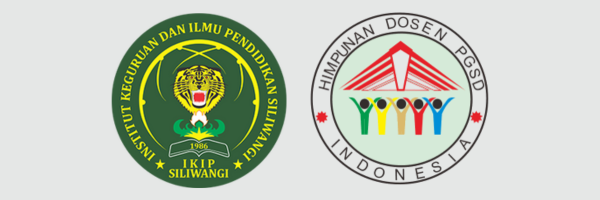Development and Validation of Mastery Concept Based Pre-Learning Questions to Support The Implementation of RADEC (ReadË—AnswerË—DiscussË—ExplainË—Create) Learning Model
DOI:
https://doi.org/10.22460/pej.v6i2.2965Abstract
The fact shows that elementary school students are generally passive because most of the elementary school teachers only ask lower-order cognitive questions such as memorization. Therefore, the purpose of this study was to develop pre-learning questions that are able to stimulate and equip students to have higher order thinking skills. This study was using a research method for developing and evaluating instruments by adapting the instrument development process that has been developed by DeVellis (2003). This development process took two phases, that was the development phase and the validation phase. Pre-learning questions are made up of a set of questions for the fourth grade of elementary school with a validated energy theme. Data analysis was carried out through validity testing uses the SPSS version 25. The test results of preË—learning questions show that the questions are feasible to use. The implication of this study is to produce a cognitive assessment instrument whose validity is tested in accordance with the appropriate cognitive stages to support the implementation of the RADEC (ReadË—AnswerË—DiscussË—ExplainË—Create) learning model used in schools by teachers.
References
Abosalem, Y. (2015). Assessment techniques and students’ higher-order thinking skills. ICSIT 2018 - 9th International Conference on Society and Information Technologies, Proceedings, March, 61–66. https://doi.org/10.11648/j.ijsedu.20160401.11
Aizikovitsh-Udi, E., & Cheng, D. (2015). Developing Critical Thinking Skills from Dispositions to Abilities: Mathematics Education from Early Childhood to High School. Creative Education, 06(04), 455–462. https://doi.org/10.4236/ce.2015.64045
Aydin Ceran, S., & Ates, S. (2020). Conceptual understanding levels of students with different cognitive styles: An evaluation in terms of different measurement techniques. Eurasian Journal of Educational Research, 2020(88), 149–178. https://doi.org/10.14689/ejer.2020.88.7
Aziza, M. (2021). A teacher questioning activity: The use of oral open-ended questions in mathematics classroom. Qualitative Research in Education, 10(1), 31–61. https://doi.org/10.17583/qre.2021.6475
Bhawanayani, L. P., Rati, N. W., Putu, L., Mahadewi, P., Ganesha, P., & Buleleng, K. (2018). PENGARUH MODEL PROJECT BASED LEARNING BERMEDIAKAN COUPLE CARD TERHADAP. 8(2), 65–73.
Brookhart, S. (2010). Your Classroom. In Journal of Education (Vol. 88, Issue 18). https://doi.org/10.1177/002205741808801819
Cotton, K. (n.d.). S chool I mprovement R esearch S eries Classroom Questioning.
Dahliana, D., Setiawati, N. S., & Taufina. (2019). Jurnal Riset Pendidikan Dasar The Effect of Scientific Approaches Against Learning Outcomes in Science Learning. Jurnal Riset Pendidikan Dasar, 02(2), 130–135.
DeCapua, A., & Wintergerst, A. C. (2005). Assessing and validating a learning styles instrument. System, 33(1), 1–16. https://doi.org/10.1016/j.system.2004.10.003
DeVellis. (2003). Scale. 26.
Ertmer, P. A., Sadaf, A., & Ertmer, D. J. (2011). Student-content interactions in online courses: The role of question prompts in facilitating higher-level engagement with course content. In Journal of Computing in Higher Education (Vol. 23, Issues 2–3). https://doi.org/10.1007/s12528-011-9047-6
Handayani, H., Sopandi, W., Syaodih, E., Setiawan, D., & Suhendra, I. (2019). Dampak Perlakuan Model Pembelajaran Radec Bagi Calon Guru Terhadap Kemampuan Merencanakan Pembelajaran Di Sekolah Dasar. Pendas : Jurnal Ilmiah Pendidikan Dasar, IV, 79–93. https://doi.org/10.23969/jp.v4i1.1857
Haverly, C., Calabrese Barton, A., Schwarz, C. V., & Braaten, M. (2020). “Making Spaceâ€: How Novice Teachers Create Opportunities for Equitable Sense-Making in Elementary Science. Journal of Teacher Education, 71(1), 63–79. https://doi.org/10.1177/0022487118800706
Macanas, G. A., & Rogayan, D. V. (2019). Enhancing elementary pupils’ conceptual understanding on matter through sci-vestigative pedagogical strategy (SPS). Participatory Educational Research, 6(2), 206–220. https://doi.org/10.17275/per.19.22.6.2
Mawardi, I. (2012). Pendidikan Life Skills Berbasis Budaya Nilai-nilai Islami dalam Pembelajaran. Nadwa, 6(2), 215. https://doi.org/10.21580/nw.2012.6.2.589
Mccomas, W. F., & Abraham, L. (1991). American Journal of Instruction. 1956.
Meirianti, A. R. (2018). Efektivitas Cyber Public Relations Pada Media Sosial Instagram Satpol Pp Kota Surabaya. Media Dan Komunikasi, 1. http://repository.unair.ac.id/80078/3/JURNAL_TSK.17 18 Mei e.pdf
Meyer, X. (2014). Productive disciplinary engagement as a recursive process : Initial engagement in a scientific investigation as a resource for deeper engagement in the scientific discipline. International Journal of Educational Research, 64, 184–198. https://doi.org/10.1016/j.ijer.2013.07.002
Nofiana, M., Sajidan, S., & Puguh, P. (2014). Pengembangan Instrumen Evaluasi Two-Tier Multiple Choice Question untuk Mengukur Keterampilan Berpikir Tingkat Tinggi pada Materi Kingdom Plantae. Jurnal Inkuiri, 3(2), 60–74.
Porter, T. (2021). Did It Work? Reflections and Five Humble Questions to Guide Assessment. Journal of Education, 002205742110250. https://doi.org/10.1177/00220574211025064
Pratama, Y. A., Sopandi, W., Hidayah, Y., & Trihatusti, M. (2020). Pengaruh model pembelajaran RADEC terhadap keterampilan berpikir tingkat tinggi siswa sekolah dasar. JINoP (Jurnal Inovasi Pembelajaran), 6(2), 191–203. https://doi.org/10.22219/jinop.v6i2.12653
Putranta, H., & Supahar. (2019). Development of physics-tier tests (PysTT) to measure students’ conceptual understanding and creative thinking skills: A qualitative synthesis. Journal for the Education of Gifted Young Scientists, 7(3), 747–775. https://doi.org/10.17478/jegys.587203
Tofade, T., Elsner, J., & Haines, S. T. (2013). Best practice strategies for effective use of questions as a teaching tool. American Journal of Pharmaceutical Education, 77(7). https://doi.org/10.5688/ajpe777155
Tso, A. W. (2021). Creativity and Critical Thinking in Practice. June, 2019–2020.
Ulandari, W., Pd, S., Perdiansyah, F., Pd, M., Zamroni, M., & Pd, M. (2020). PENINGKATAN BERPIKIR KRITIS MELALUI METODE PROBLEM BASED LEARNING SISWA KELAS IV SDN PINANG 6 TANGERANG. 2(1), 42–51.
Yin, Y., Tomita, M. K., & Shavelson, R. J. (2014). Using Formal Embedded Formative Assessments Aligned with a Short-Term Learning Progression to Promote Conceptual Change and Achievement in Science. International Journal of Science Education, 36(4), 531–552. https://doi.org/10.1080/09500693.2013.787556
Zhang, M., Tian, G., & Zhang, Y. (2019). A Home Service-Oriented Question Answering System with High Accuracy and Stability. IEEE Access, 7, 22988–22999. https://doi.org/10.1109/ACCESS.2019.2894438












